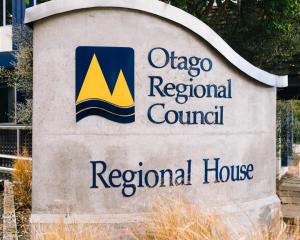
The dismantling by our new coalition government of Treaty-based legislation enacted by the Labour government to level the playing field between Māori and Tangata Tiriti (non-Māori), by creating new entities to give effect to hauora, including the Māori Health Authority, is an undemocratic, ideological abomination.
Intrinsic to the practice of democracy is the honouring of treaties, in our case the legitimate version the chiefs signed, namely the Māori language version of the Treaty of Waitangi, implicit in which is the acknowledgement of Māori being the First Peoples of Aotearoa/New Zealand, and for which the legal principle of contra preferentem applies.
"Contra preferentem" means that the interpretation of the Treaty is to be that which most disadvantages the drafter of the Treaty (the British) and most advantages the other signee or party, in this case Māori, whose numbers were already being overwhelmed by that of the white settlers.
The idea that New Zealand is an equal-opportunity-for-all nation is a nauseating myth, and has been since the mid-19th century. Equal opportunity can only apply in substantially egalitarian societies, where we all start off from roughly the same socio-economic place.
So providing concrete mechanisms to counter the systemic racial and economic bias against Māori (and Pasifika) is essential to creating a fair, prosperous, civilised and democratic society.
Give a demonstration
The new government's proposed review of preferential Māori and Pacific entry into our medical schools has raised the inevitable accusation of "racist dog whistling" (ODT 30.11.23). It would, however, be more helpful if the universities concerned were able to demonstrate the effectiveness of the second criterion for entry; to "be committed to giving back to Māori communities". What proportion of those who achieve preferential entry actually do this and what exactly does it mean to do so? Are graduates bound to work, for example, in rural communities for a period? Do those who go on to be specialists focus on particular communities?
There is nothing intrinsically wrong with the idea of preferential entry, but it needs to be clearly justified in order to avoid accusations of racism (a cheap response common to both sides of the argument) and to acknowledge the fact that some aspirants who might otherwise have got in, haven't.
Doublespeak
Yet another case of Orwellian doublespeak, this time from the outgoing OUSA president Quintin Jane (ODT 27.11.23). The policy to examine the special admission pathways to Medical School for Māori and Pacific students is not racist: it is the pathways themselves that are racist.
Disappearing cyclists
The biggest argument for destroying the Taieri railway is that cyclists will no longer stop at Hindon, but will ride on to Mosgiel or Dunedin. So the assumption is made that all these cyclists simply disappear once they reach Hindon. Supposedly none of the riders spend any time in Dunedin. They just morph back to their homes without spending a cent in the area. I am assuming these assumptions are simply wrong. Don't you love assumptions? If there are a few who must ride from Queenstown to Dunedin, ride via Lawrence and Milton.
Unsafe? Me? No, I’m perfectly fine thanks
I am writing to correct Yana Greenman who was quoted in the ODT (29.11.23) as saying that "Otago Jews have become fearful for their safety and afraid to speak up". I am a Jewish Kiwi living in Dunedin, I felt perfectly safe at the council meeting on Tuesday, and have felt safe marching with our Palestinian whanau at the weekends and perfectly safe speaking up calling for a free Palestine and a stop to all the killings.
Violent times
The world remains persecutory to Israel, as all of Europe did in 1940.It wasn't just Germany.
We hear of the persecution of the Jews, the most persecuted people in human history. We live in violent times.
What Jesus said
Religious historian, emeritus professor Peter Matheson, is right when he writes (ODT 27.11.23) about the war between Hamas and Israel needing "thinking through theologically" concerning what he calls "the pervasive sense of moral entitlement" about the matter.
Coming from a "Christian stable" Dr Matheson ought to know that Jesus himself delivered the last word on the matter when he preached in his Olivet Discourse (Matthew 24:6) "And you shall hear of wars and rumours of wars: see that you be not troubled: for all these things must come to pass, but the end is not yet".
Contrary to the Lord’s injunction Dr Matheson appears to be troubled.
As a born-again believer I’m not the least bit troubled by the Hamas-Israel war and I exhort Dr Matheson and others not to be either.
Address Letters to the Editor to: Otago Daily Times, PO Box 517, 52-56 Lower Stuart St, Dunedin. Email: editor@odt.co.nz












